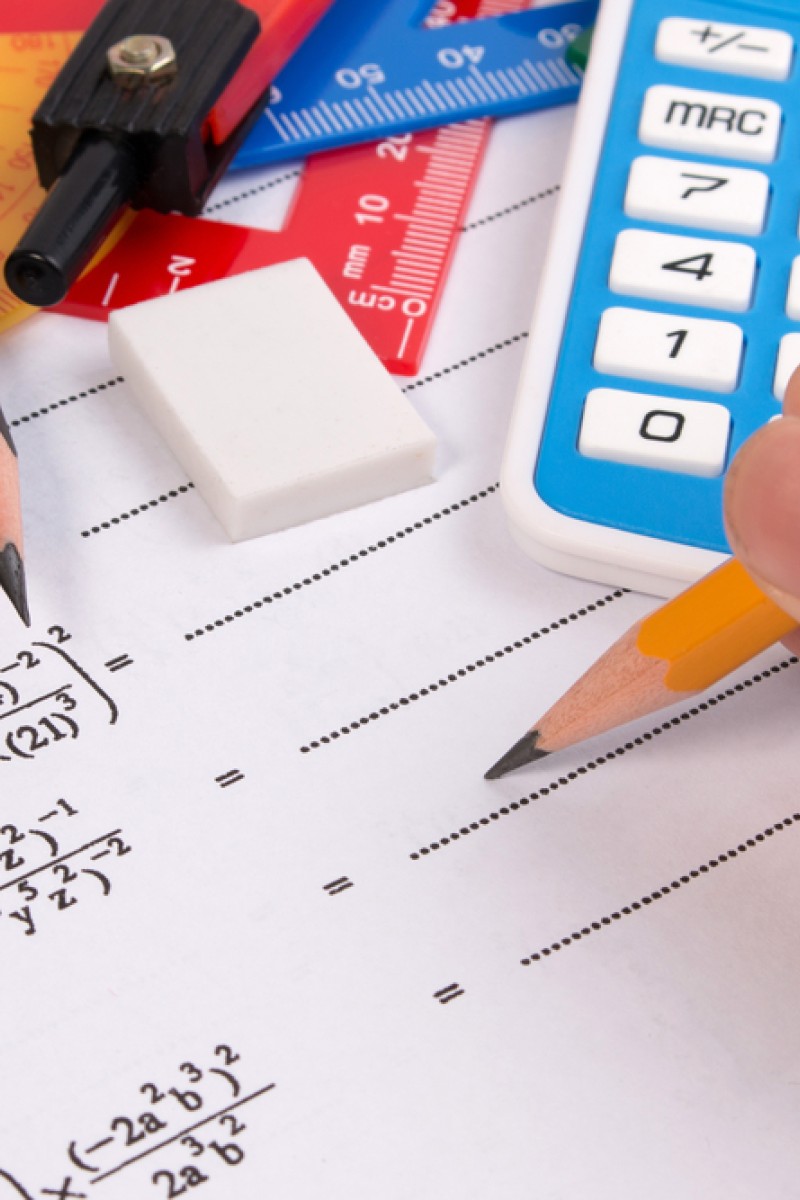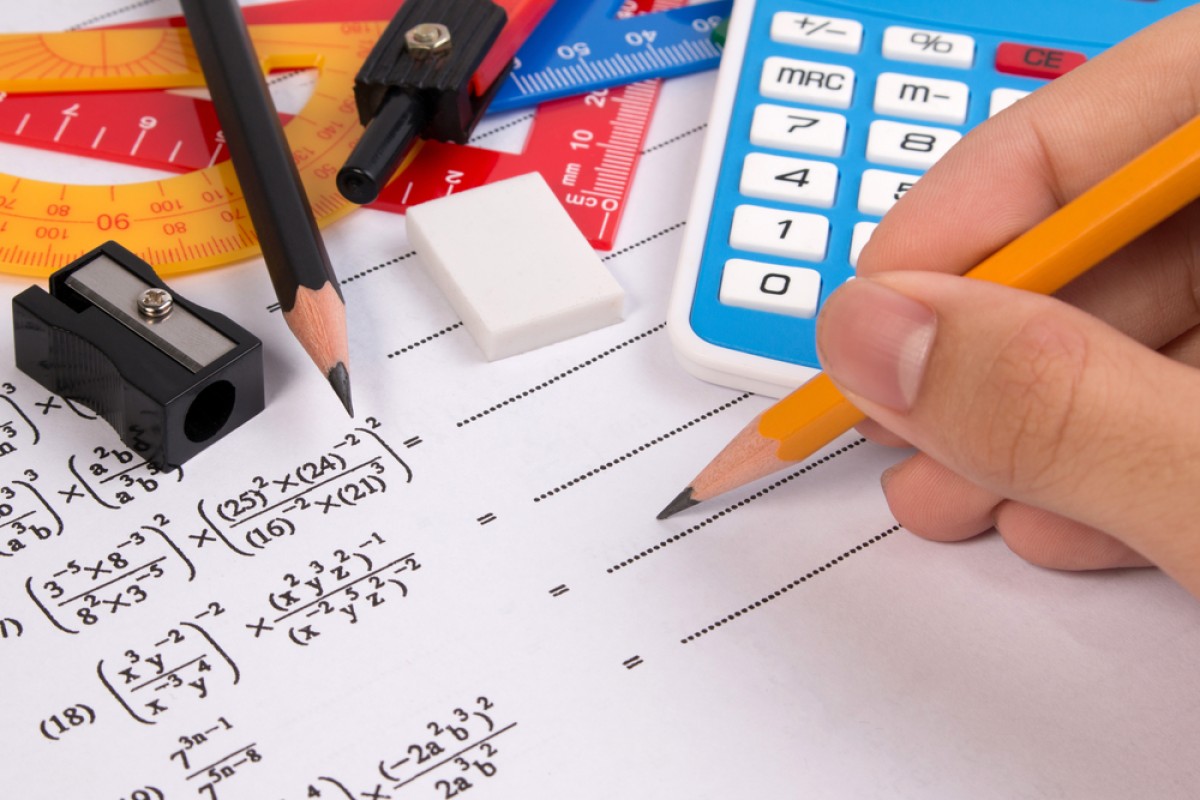
Top study tips for the IB maths exam: Do past papers, study the marking scheme and learn to use your graphics calculator
A veteran tutor from Cana Elite Education Centre gives you practical advice on how to make the last few days of revision count

With one week to go before International Baccalaureate students sit the compulsory Mathematics examination, Young Post sought advice from Tim Lee, co-founder of the Cana Elite Education Centre, and a top maths tutor, on how to make the last few days of revision count.
Get to grips with your graphics calculator
While calculators aren’t allowed in Paper 1, you should make good use of your graphics calculator in Paper 2, says Lee. When it comes to solving complicated equations, using a calculator will be much faster and easier than using algebra.
Lee’s advice is to find the solutions on the graphs, rather than using the “solve” key, because the graph can show multiple solutions to an equation. It’s also important to make
sure you have the correct set-up on your device, such as the X-axis and Y-axis scaling, or whether you should be using radians as opposed to degrees.
Learn key words and formulas
There are a few key question words that are specific to the IB maths paper, such as “state”, “write down”, “find”, and “sketch”. When you see these words, you’ll be required to answer the question in a certain way, so it’s important to understand what each one means. Similarly, you need to know the terms and symbols inside your formula booklet, and when to apply certain formulas.
“If the question asks you to ‘state’ something, usually the answer can be obtained from the previous part, and there’s no need to show working. If you start showing your working, you’re wasting time,” says Lee.
Keep an error log book and read the mark scheme
Most students already know the importance of doing past papers, but Lee says that this is only useful if you also keep a log book of all the errors you make. Lee recommends writing down all the questions you get wrong – along with the correct answer – and sort them into different topics. That way, you’ll know which topics you’re doing well in, and which ones you need to look over again.
It’s also crucial to keep referring back to the mark scheme, as this will help you understand how each mark is given. This comes in particularly handy when you only know how to answer part of a question, or when you don’t have enough time to complete the whole thing. The mark scheme will tell you how you how you can still grab a few points.
“Keeping an error log book and reading the mark scheme are a must – otherwise, working on past papers is not going to maximise the return on your invested time and effort,” Lee says.
Lee says you should try to do at least five past papers, starting with the 2014 paper and working forwards.
Annoyingly for students, the only way to get past papers is by buying them from the exam authority, or going to a tutoring company which will have already bought them. Some past IB students told Young Post that many of their peers would rather do papers from other public examinations than fork out for the IB ones. Lee advises against this.
“That’s a very bad idea. Different exams have different requirements, different mark schemes, and different ways of framing questions,” he says. Instead, Lee suggests signing up for just one or two classes at a tutoring centre, and asking the tutor for past papers. “Most tutors would be more than happy to do so – if they aren’t, it means they care more about the money than they care about you.”
Test-taking strategy
When the day of the exam arrives and you open your booklet, your instinct will probably be to start working through it in order straight away. Lee, however, suggests taking 30 seconds to scan the paper, and picking out two or three questions that you know you can solve. This will give you a confidence boost at the very beginning of the test.
“Students will think ‘Oh, I’m scoring’, and that momentum can be carried on to the questions they don’t like,” Lee says.
As always, try not spend too much time on questions that are only worth a few points, and remember to save time for the harder questions at the end.
Common mistakes
After 10 years of teaching IB maths, Lee has identified a few common mistakes. He says that students often forget to add brackets when entering sums into their calculator, and end up with a completely different answer. They also tend to miss the negative signs, or make careless arithmetic mistakes.
A good way to avoid losing points over careless mistakes is by highlighting keywords and data as you’re reading a question. It’s also best to write down all your workings, rather than doing mental calculations. “If you notice that you haven’t used all the information given to you, then very likely there is something wrong,” says Lee.
Before the exam
Once you’ve done all your past papers, don’t tire yourself out with new problems the night before the exam. Instead, give yourself plenty of time to rest for at least two nights, then review your error logs on the day of the exam to remind yourself which topics will require a
bit more of your attention.
Edited by Charlotte Ames-Ettridge
You might also like:
Exam tips and study advice from adults who've been there, done that
Our special Spotify playlist to help you relax, de-stress, and get pumped up to slay your exams